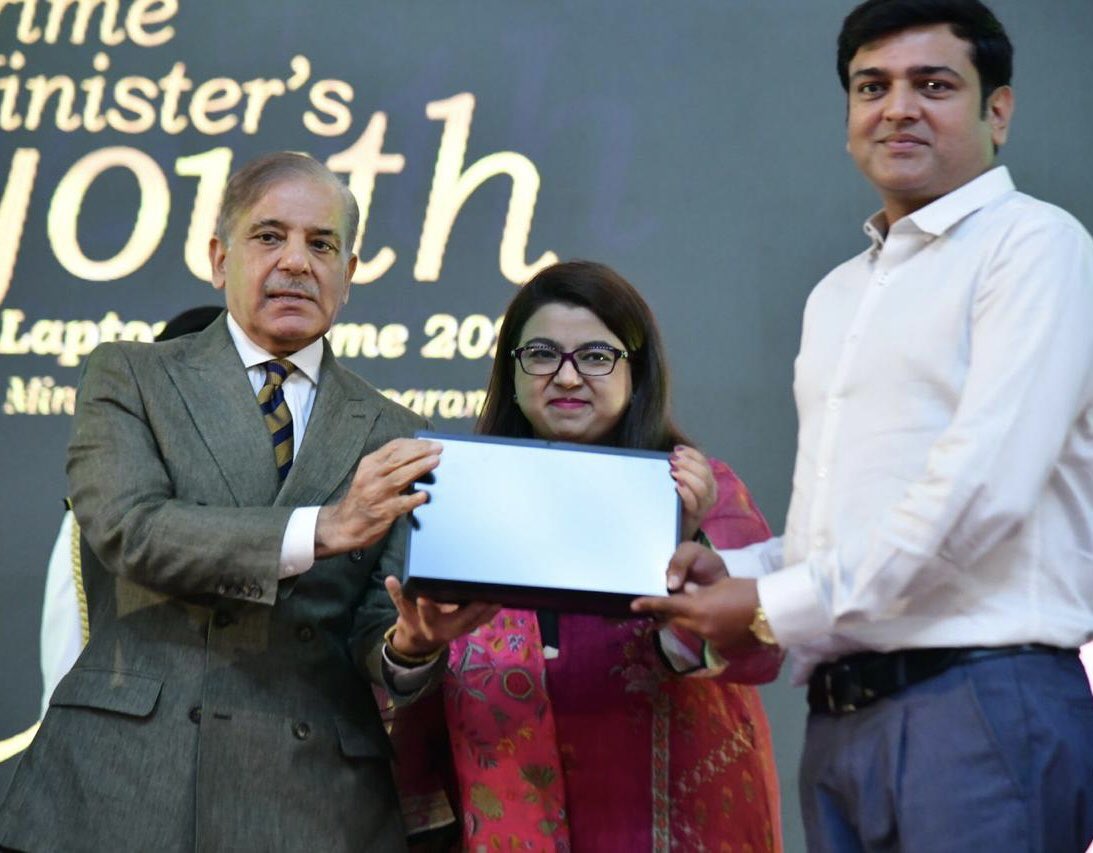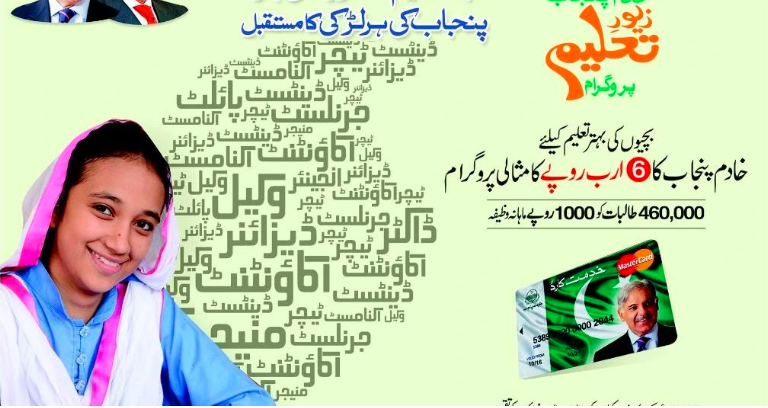Education is a crucial factor in the socio-economic development of any region. Over the past decade, the province of Punjab in Pakistan has witnessed significant advancements in its education sector. This article aims to explore the remarkable developments and achievements in education from 2008 to 2018, focusing on the efforts made by the Punjab government to promote education. Through a descriptive research design, incorporating qualitative and quantitative data from various sources, this piece provides insight into the initiatives, challenges, and prospects of education in the province.
Shehbaz Sharif’s contribution to education (2008-2018)
During his tenure as chief minister, Shehbaz Sharif played a pivotal role in transforming the education landscape in Punjab. Recognised as an able administrator, he prioritised developmental projects and facilitated access to education for all (Zeidan, 2023). One of the significant achievements was the increase in enrollment rates. Under the Schools Reforms Roadmap Program, the Punjab Government outsourced 43,000 schools through public-private partnerships, resulting in a rise in enrollment (The Express Tribune, 2017).
In the pursuit of these educational reforms, Shehbaz Sharif received significant support from his education minister, Rana Mashhood Ahmad Khan. As the education minister, Khan played a crucial role in implementing various educational initiatives and policies. His dedication and strategic leadership complemented Shehbaz Sharif’s vision for improving educational outcomes in Punjab. Together, they worked towards enhancing the quality of education and expanding educational opportunities for students.
During his tenure as chief minister, Shehbaz Sharif played a pivotal role in transforming the education landscape in Punjab.
Literacy rates
The emphasis on adult literacy programs, particularly for women, contributed to the increase in Punjab’s overall literacy rate from 55.53 per cent in 2008 to 57.01 per cent in 2018 (Macrotrends LLC, n.d.). Although progress has been made, certain rural areas still face challenges in achieving widespread literacy.
Infrastructure development
In addition to internal reforms, Shehbaz Sharif focused on improving the educational infrastructure in Punjab. The government initiated numerous projects to construct and upgrade schools, libraries, and laboratories. This investment provided students with improved access to quality education and enhanced learning environments.
Government initiatives and schemes
The government of Punjab introduced several educational initiatives during the 2008-2018 period to enhance educational outcomes. These initiatives included:
- The Punjab Education Endowment Fund (PEEF). PEEF emerged as a positive scholarship scheme, providing financial assistance to talented students not only in Punjab but also from other provinces. Since its inception in 2009, PEEF has awarded over 440,000 scholarships to deserving students (The Punjab Educational Endowment, n.d.).
- Laptop Scheme:
 The laptop distribution program was launched in 2011 by the Punjab government under the leadership of Chief Minister Shehbaz Sharif. The scheme aimed to bridge the digital divide and promote digital literacy among students. Initially, the laptops were awarded to high-achieving students enrolled in government institutions. Later, the program expanded to include students from private institutions as well.
The laptop distribution program was launched in 2011 by the Punjab government under the leadership of Chief Minister Shehbaz Sharif. The scheme aimed to bridge the digital divide and promote digital literacy among students. Initially, the laptops were awarded to high-achieving students enrolled in government institutions. Later, the program expanded to include students from private institutions as well. - International trips for high achievers: As part of the government’s efforts to encourage excellence in education, Shehbaz Sharif facilitated agreements with international educational institutions. This initiative allowed outstanding students to pursue higher education or participate in academic programs abroad, thereby gaining exposure to global educational standards and opportunities.
- Scooties for female students:
 The government of Punjab recognised the challenges faced by female students in accessing education, particularly in remote areas. To address this issue, the government introduced the provision of scooters (scooties) for female students. By providing transportation assistance, this initiative aimed to enhance the enrollment and attendance of girls in schools, promoting gender equality.
The government of Punjab recognised the challenges faced by female students in accessing education, particularly in remote areas. To address this issue, the government introduced the provision of scooters (scooties) for female students. By providing transportation assistance, this initiative aimed to enhance the enrollment and attendance of girls in schools, promoting gender equality. - Waseela-e-Taleem (WT) Program: Launched in 2012, the Waseela-e-Taleem program was a conditional cash transfer initiative designed to support the education of disadvantaged children. The program targeted families living below the poverty line and provided them with financial assistance in exchange for enrolling their children in schools and ensuring their regular attendance. The program initially covered five districts and later expanded to 50 districts across Punjab, reaching thousands of underprivileged children.
- Foundation Assisted Schools (FAS): The Foundation Assisted Schools program was established in 2005 by the Punjab Education Foundation (PEF). It aimed to improve access to quality education in underserved areas. The PEF partnered with various private schools, including those in rural, urban, and slum areas, to provide financial and technical assistance. Through this program, over 1.80 million students had the opportunity to receive a quality education.
- TEVTA revitalisation: Technical Education and Vocational Training Authority (TEVTA) is responsible for promoting technical education in Punjab. During the 2008-2018 period, Shehbaz Sharif’s government allocated funds to revitalise TEVTA. The funds were used to modernise the technical education curriculum, provide training to teachers, and collaborate with Turkish institutions to acquire expertise and improve the quality of technical education in Punjab.
- Daanish Schools: The Punjab Daanish Schools and Centres of Excellence Authority were established in 2010 to provide quality education to underprivileged students. Daanish Schools, operated under this authority, are a network of residential schools that cater to children from low-income backgrounds. These schools focus on providing a high standard of education, along with boarding facilities, to ensure holistic development and equal opportunities for students from disadvantaged backgrounds.

- Zewar-e-Taleem Program: Recognising the critical role of girls’ education in the development of Pakistan, the government of Punjab launched a commendable initiative called the Zewar-e-Taleem program. This program aimed to enhance female education by focusing on the enrollment and retention of girls in schools, with the overarching goal of ensuring gender equality in education. The Zewar-e-Taleem program operates under the umbrella of the Punjab Social Protection Authority (PSPA), which was established with the mandate to evaluate, review, and streamline existing social protection and anti-poverty programs. Created in 2015 during Shehbaz Sharif’s tenure as the chief minister of Punjab, the PSPA is a statutory body established through an Act of the provincial legislature. Its primary objective is to set up a comprehensive, efficient, effective, and inclusive social protection system that caters to the needs of the poor and vulnerable population in Punjab (Social Protection.org, para. 1).

- Punjab Youth Policy 2012: The Punjab Youth Policy emerged as a well-planned scheme, specifically focusing on the youth. This policy comprehensively addresses key issues concerning the young generation and provides an agenda that promises socio-economic and political empowerment. Its primary objective is to foster a cohesive vision for youth development by creating an enabling environment that facilitates the development of skills, capabilities, and a passion for positive change, thereby contributing to the country’s progress. The policy aims to cultivate the human resource base of young individuals and transform them into valuable social capital by nurturing their competencies, skills, and social commitment. Among the notable features of this policy, the provision of scholarships to high achievers and the arrangement of training programs to guide youth in starting and running their own businesses after graduation are noteworthy initiatives (Punjab Youth Policy 2012, Pgs. 7&18).
- Induction training of college teachers: Teaching and learning are inherently interconnected. Teachers must be well-prepared to address the logical and thought-provoking questions posed by intellectually gifted students. Moreover, with the rapid advancements in technology, learners often outpace teachers, making it essential for educators to continually update their knowledge and teaching techniques. Recognising this, Shehbaz Sharif foresaw the importance of developing a teacher training program to ensure that educators are equipped with the latest teaching methodologies, with a particular emphasis on activity-based learning to enhance students’ skills. These training sessions are not limited to teachers alone but also extend to principals across Punjab. By prioritising teacher development, Shehbaz Sharif intended to elevate the teaching profession and maintain the respect it deserves while facilitating effective learning experiences for students.

The work done in Punjab has been recognised by international media. The purpose of all these reforms was to provide comprehensive training to the youth right from the start, to shape their lives, careers, and futures. This training is crucial not only for addressing national challenges but also for preparing them to effectively tackle global challenges alongside other nations. PML-N demonstrated its commitment to realising this vision during its governance in Punjab from 2008 to 2018. By implementing groundbreaking reforms in the education sector, the party exemplified that determination and dedication can turn any aspiration into a reality. With unwavering resolve, PML-N aims to forge ahead and sustain educational reforms in Punjab and extend them throughout the rest of the country.
The writer is an educationist and teaches at the University of Central Punjab.








